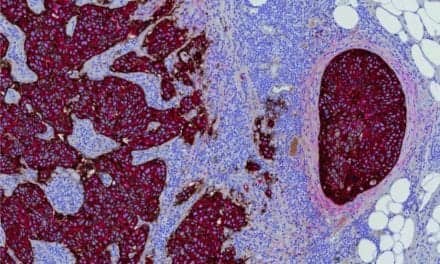Prostate cancer has become more common in younger men, and it’s often more aggressive in these men. A new study from researchers at the University of Michigan Comprehensive Cancer Center has found that a series of genetic mutations could help detect this early onset prostate cancer.
Researchers believe that genetics and traditional screening methods could play a role in predicting the risk of prostate cancer in younger men.
“This is a potential opportunity to combine PSA testing with genetic markers to determine who has significant prostate cancer. It could be a combination of age and family history that could help us determine who should be tested with PSA and a panel of genetic markers,” says study author Kathleen Cooney, MD, Frances and Victor Ginsberg Professor of Hematology/Oncology and division chief of hematology/oncology at the U-M Medical School.
Researchers looked for 14 different gene mutations in 754 men age 56 and younger with prostate cancer. The men were enrolled in the Prostate Cancer Genetics Project at U-M. Researchers also looked at 1,163 older men with prostate cancer and 2,713 men without prostate cancer.
The study, which was presented at the American Society of Clinical Oncology annual meeting, found that the younger men carried more of these genetic mutations. In addition, 30% of the younger men had aggressive prostate cancer and 41% of these men had at least one first-degree relative with prostate cancer.
“Early onset prostate cancer has a strong genetic component, which we saw in this study. The genetic variants we looked at here are likely not the best indicators. Our next step is to look more widely for common genetic variants among this group of men,” Cooney says.
Source: University of Michigan


